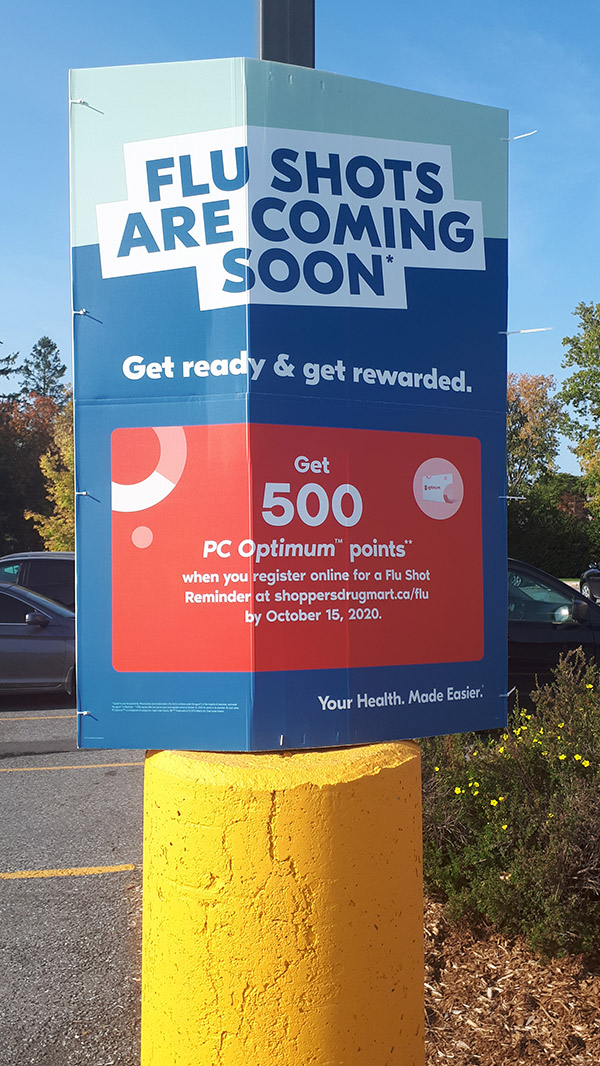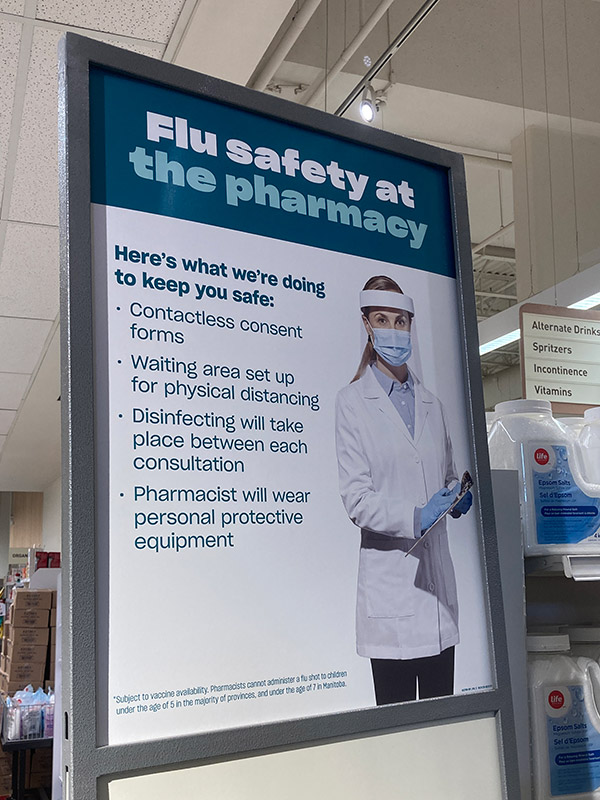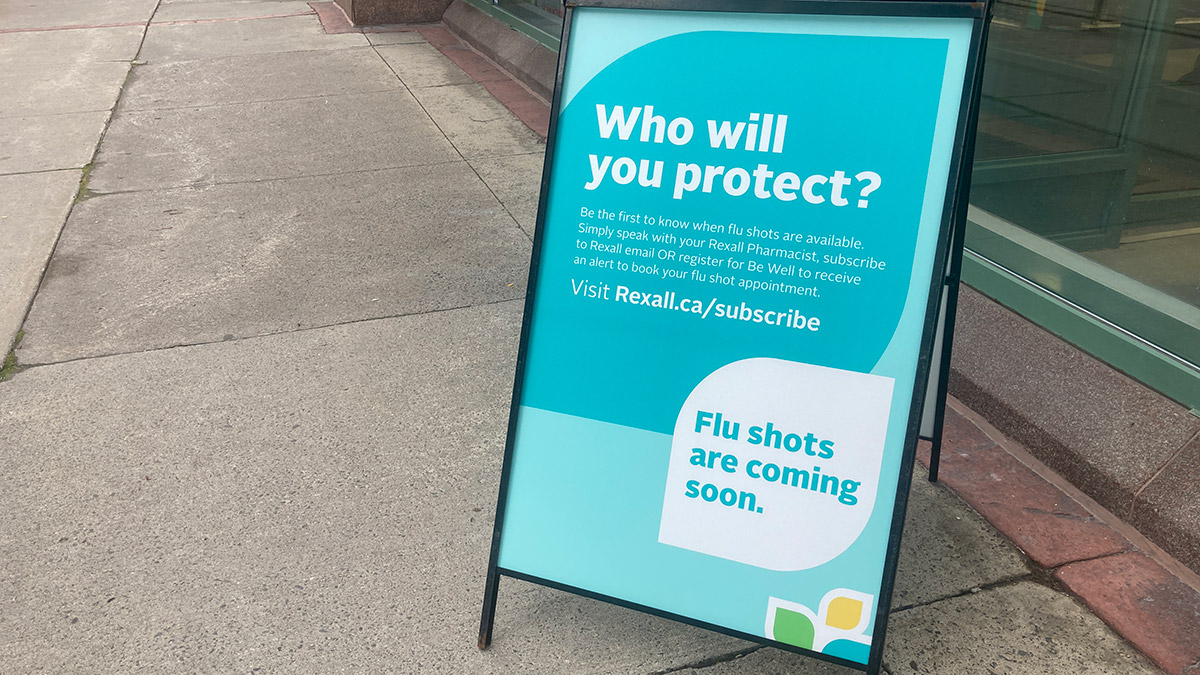As COVID-19 cases continue to rise in Ottawa, health officials are pushing for an increase in flu vaccinations this year to avoid a “twindemic.”
Why should you get the flu shot?
COVID-19 cases take up respiratory resources in hospitals and could decrease capacity to care for influenza patients, said Patrick Saunders-Hastings, an epidemiologist and risk scientist in Ottawa.
Flu symptoms may also be mistaken for COVID-19 symptoms, resulting in people needing to quarantine, said Saunders-Hastings.
“We have a fairly effective and very safe vaccine available to prevent a respiratory illness that is a pain in the butt in the best of cases and deadly in the worst,” said Saunders-Hastings. “So I think that we all have a responsibility to protect ourselves and those around us.”
Flu vaccine effectiveness is measured in the middle and at the end of the flu season by the Canadian Sentinel Practitioner Surveillance Network. It is a measure of the percentage of flu cases that could be prevented in a vaccinated versus an unvaccinated group. While the effectiveness in 2014-15 season was low, it was 56 per cent last season.
Note: The percentage is in between the low range and high range of the 95 per cent confidence interval. Please refer to OPH for details.

When should you get the flu shot?
That depends on when it’s available, said Saunders-Hastings. “But generally speaking, we would like individuals to be vaccinated in advance of the real onset of flu season,” he said. That’s because the vaccine takes about two weeks to ramp up to its full protective status, he said.
Usually, the peak vaccine period is October and November.
How can you get the flu shot?
Flu shots are available at the offices of family doctors, pharmacies and health clinics.
The obvious complication this year is that in Ottawa, many pharmacies will also be offering COVID-19 tests for people without symptoms. This means appointments may have to be booked for the flu shots.
“Patients are required to make an appointment for a COVID-19 test and many pharmacies will require the same for flu shots,” wrote the Ontario Pharmacists Association CEO, Justin Bates, in a statement. “As well, all safety protocols will be put in place to ensure safe social distancing.”
In his final year at Sir Robert Borden High School, Daniel Bersyniow-Naane said he will get his flu shot this year just like he does every year.

“I will definitely go to a familiar or local pharmacy because I trust their procedures and health and safety procedures and guidelines,” he said.
“But I won’t be going to a clinic because I don’t want to be exposed to people who may be, or who are already sick.”
Offering the flu shot at a broader range of places — including COVID-19 testing centres — is one thing Saunders-Hastings wants to see.
“Not that an individual would go to a COVID testing center for the sole purpose of getting an influenza vaccine,” he said.
“But I think if they’re going to get tested anyways, that would be a nice opportunity to also receive a vaccine for another respiratory illness.”
How will COVID-19 impact flu season?
“We very rarely see simultaneous transmission of two respiratory viral infections,” said Saunders-Hastings. Usually, when a new pandemic virus begins, it’s an influenza strain which displaces the previous strain, he added.
There’s no strong scientific data on the potential consequences of contracting the flu and COVID-19 simultaneously, said Saunders-Hastings, but it’s possible a respiratory system damaged by COVID-19 could be further impacted by the flu.
The good news is that COVID-19 precautions go beyond normal flu precautions, said Saunders-Hastings. Physical distancing and masks are beneficial he said, in addition to good hand hygiene.
While experts stress the importance of flu shots, not everyone is on board.
“I do not normally get the flu shot every flu season and I am not going to get it this flu season,” said Michal Blechman, an undergraduate student at the University of Toronto. Blechman said she isn’t concerned about contracting COVID-19 and the flu, despite the two viruses having similar symptoms.
“There is a chance I can confuse the two viruses due to their symptoms, but if I’m concerned, I’ll just go get tested,” she said.
The dual outbreak of COVID-19 and the seasonal flu will undoubtedly create a unique situation. Saunders-Hastings has some advice: “Take as many precautions as you can to protect yourself and those around you.”




